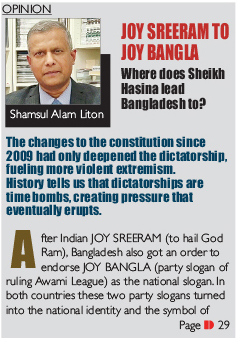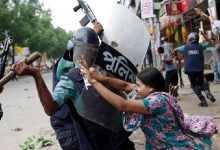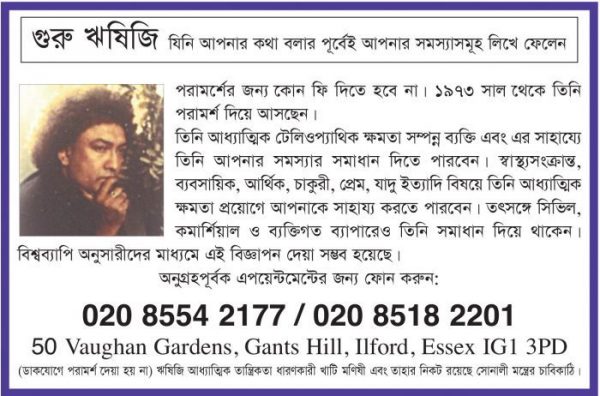15 Reasons why BNP should not participate in any election under Sheikh Hasina
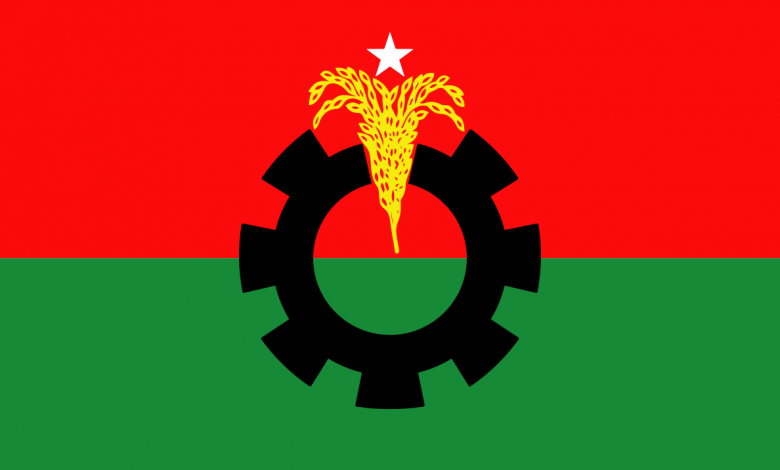
Asif Armani
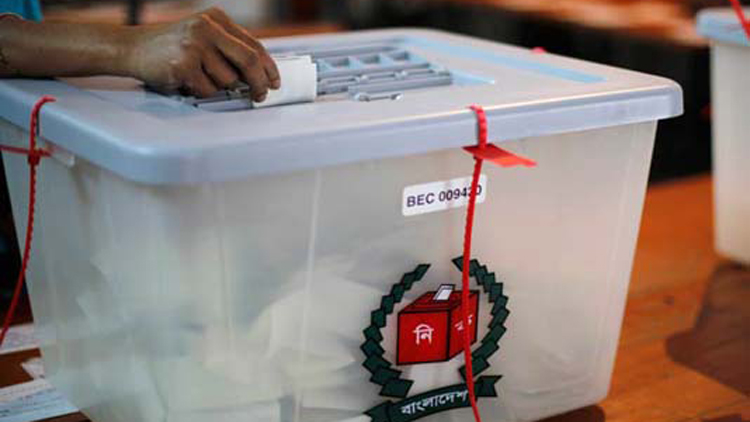
The BNP, being the largest democratic party in Bangladesh, has a remarkable track record of winning landslide victories whenever there have been free and fair elections in the country. However, the current political climate instills fear that Sheikh Hasina, recognizing the BNP’s potential to secure a substantial majority, will not arrange for a genuinely free and fair election. Impartial polls conducted by independent organizations consistently indicate that if a fair election were to take place at this moment, the BNP would emerge victorious with a significant majority.
Regrettably, Sheikh Hasina has gained a reputation as a master of election rigging, strategically employing tactics to manipulate the electoral process in her favour. Consequently, the BNP faces a dilemma: by participating in elections under Hasina’s government, they would inadvertently lend legitimacy to an administration that systematically undermines democratic principles and disregards human rights. Hasina often allures the opposition to engage in elections merely to justify her own illegitimate rule, perpetuating a facade of democratic practices while suppressing dissent and consolidating her power.
Against this backdrop, it becomes increasingly clear that the BNP should exercise caution and refrain from participating in any election conducted under Sheikh Hasina’s leadership. By boycotting such elections, the BNP can send a powerful message to both domestic and international audiences, highlighting the deeply flawed and undemocratic nature of the current regime. This strategic move would emphasize the urgent need for democratic reforms and draw attention to the severe restrictions imposed on political opponents and civil society organizations.
Rather than engaging in a compromised electoral process, the BNP can redirect its efforts towards advocating for democratic reforms and actively engaging with international stakeholders. By amplifying their concerns and seeking support from the international community, the BNP can work towards exposing the autocratic tendencies of the government and pressuring for necessary changes that would foster a more inclusive and democratic political environment in Bangladesh.
As Bangladesh prepares for its next round of elections, it is crucial to critically assess the authoritarian regime of Sheikh Hasina and the state of democracy under her government. The Bangladesh Nationalist Party (BNP) has encountered numerous challenges under Hasina’s rule, ranging from human rights violations to authoritarian governance. This article presents 15 compelling reasons why the BNP should refrain from participating in any election under Sheikh Hasina’s leadership.
Erosion of Democratic Institutions:
Under Sheikh Hasina’s government, democratic institutions in Bangladesh have been systematically dismantled, resulting in limited political freedoms and the stifling of dissenting voices. The judiciary, media, and civil society organizations have been specifically targeted, leaving little room for a genuinely inclusive and democratic political landscape. For instance, the judiciary has been targeted, as seen in the introduction of the 16th amendment to the constitution, which undermined the separation of powers and compromised the judiciary’s ability to act as a check on the executive branch.
The media has also faced suppression under Hasina’s government, with journalists experiencing intimidation, harassment, and violence for reporting on critical issues. The targeting of civil society organizations, such as Odhikar, has further restricted their role in advocating for citizen rights and undermined the democratic fabric of the country.
Authoritarian Governance:
Sheikh Hasina’s leadership style leans towards authoritarianism, concentrating power in her hands and marginalizing opposition parties like the BNP. The BNP has faced constant harassment, arrests, and imprisonment of its leaders and activists, limiting their ability to participate freely in the political process.
Instances of targeting BNP leaders and activists, including the imprisonment of Khaleda Zia, the former prime minister and BNP leader, have been widely criticized for lacking credible evidence and being politically motivated. The government’s control over key state institutions, including the Election Commission, raises concerns about the fairness of the electoral process, denying the BNP and its supporters a level playing field.
Human Rights Violations:
The Hasina government has been marred by numerous human rights violations, including extrajudicial killings, enforced disappearances, and torture. Opposition members and political dissidents are often labeled as “Islamist terrorists” and face severe repercussions without fair trials.
Enforced disappearances have surged in Bangladesh under Hasina’s government, targeting opposition members and activists. The lack of accountability and failure to bring perpetrators to justice highlight a climate of impunity prevailing under the current government. Similarly, extrajudicial killings by law enforcement agencies raise serious questions about due process and the government’s use of counterterrorism as a pretext to suppress political dissent.
Manipulation of Elections:
Sheikh Hasina’s party, the Awami League (AL), has been accused of widespread election rigging and manipulation, undermining the fundamental principles of democracy. The 2018 national election, where the AL secured a landslide victory, was marred by serious irregularities, including voter intimidation and the prevention of opposition supporters from accessing polling stations. The government’s control over media outlets and state institutions further exacerbates concerns about the manipulation of elections, creating an uneven playing field for political competition.
Targeting of Opposition:
The BNP has been the primary target of Hasina’s government, with its leaders and activists facing continuous persecution, politically motivated arrests, and imprisonment. This hampers the BNP’s ability to participate freely in the electoral process and operate as a legitimate political party.
A subservient Judiciary:
The independence of the judiciary in Bangladesh has been a subject of concern which has been compromised under Hasina’s leadership, with political considerations influencing judicial appointments and decisions. There have been allegations of political interference in the judicial process, leading to biased decisions and unfair treatment of opposition members. The lack of judicial independence undermines the rule of law and erodes public trust in the justice system, making it difficult for the BNP to seek legal recourse or challenge government actions.
Impunity for Government Supporters:
There is a pervasive culture of impunity for supporters and members of the ruling party in Bangladesh, like Chhatro League and Jubo League. They often engage in acts of violence and intimidation against opposition parties, including the BNP, without facing appropriate legal consequences. This not only creates an atmosphere of fear and insecurity but also undermines the BNP’s ability to campaign and mobilize its supporters effectively.
Restrictions on Freedom of Assembly and Expression:
Under Sheikh Hasina’s leadership, there have been increasing restrictions on freedom of assembly and expression. Opposition rallies and gatherings are frequently disrupted or prohibited by the authorities, limiting the BNP’s ability to connect with its supporters and convey its political message. Media outlets critical of the government face censorship, harassment, and even closure, further stifling the opposition’s voice.
Flawed Election Commission:
The Election Commission in Bangladesh has been widely criticized for its lack of independence and impartiality. The commission is perceived to be heavily influenced by the ruling party, compromising its ability to conduct free and fair elections. The BNP has expressed concerns about the commission’s biased behaviour and its failure to address electoral irregularities, which undermines trust in the electoral process.
Suppression of Student Protests:
The government under Sheikh Hasina has been accused of suppressing student protests, as seen during the widespread demonstrations demanding road safety in 2018. Students calling for safer roads and accountability faced violent crackdowns by law enforcement agencies, leading to injuries and arrests. This suppression of peaceful protests raises concerns about the government’s willingness to respect the rights of citizens to express their grievances and participate in the political process.
Targeting of Opposition:
The opposition, including the BNP, has faced systematic targeting by the government under Sheikh Hasina’s leadership. Opposition leaders and activists are often subjected to politically motivated arrests, harassment, and even violence. The use of repressive laws, such as the controversial Digital Security Act, has further restricted freedom of speech and enabled the government to clamp down on dissenting voices.
Impunity for Human Rights Abuses:
Instances of human rights abuses, including extrajudicial killings, enforced disappearances, and torture, have been reported in Bangladesh. The government has been accused of failing to hold security forces accountable for these violations, leading to a climate of impunity. The BNP has criticized the government for its inaction and called for an end to human rights abuses, but the lack of progress on this front undermines the opposition’s faith in the government’s commitment to justice and human rights.
Failure to Address Corruption:
Corruption remains a significant issue in Bangladesh, with Transparency International ranking the country low on its Corruption Perceptions Index. The BNP has accused the government of turning a blind eye to corruption within its own ranks and failing to take effective measures to combat the problem. The perception of widespread corruption erodes public confidence in the government and undermines the BNP’s trust in the integrity of the electoral process.
Weakening of Civil Society:
Civil society organizations play a vital role in promoting democratic values, advocating for human rights, and providing a platform for citizens’ voices. However, under Sheikh Hasina’s leadership, civil society organizations in Bangladesh have faced increasing restrictions and intimidation. This has weakened their ability to effectively support the opposition and hold the government accountable for its actions, further limiting the BNP’s avenues for engagement and mobilization.
Lack of International Pressure:
The international community’s response to the erosion of democratic norms and human rights in Bangladesh has been relatively muted. The lack of significant pressure from the international community to address these issues allows the government to continue its repressive tactics with impunity. The BNP has called for greater international attention and pressure to safeguard democratic values and ensure a level playing field for all political parties.
It can be noted here that despite being in power for several terms, Sheikh Hasina’s government has been criticized for its failure to adequately address socioeconomic issues and uplift marginalized communities. High levels of poverty, unemployment, and income inequality persist, with a significant portion of the population struggling to meet basic needs. The BNP argues that the government’s focus on consolidating power and suppressing the opposition has hindered effective governance and the implementation of policies to address these pressing challenges.
In light of these reasons, the BNP may argue that participating in elections under such conditions could legitimize a system that undermines democracy, disregards human rights, and restricts the opposition’s ability to compete on a fair and equal footing. Instead, the BNP might focus on advocating for democratic reforms, engaging with international stakeholders, and building alliances within civil society to foster change and create a more inclusive political environment in Bangladesh.
In conclusion, the BNP, as the largest democratic party in Bangladesh, faces significant challenges under the current regime led by Sheikh Hasina. The party’s historical victories in free and fair elections and the potential for a substantial majority in impartially conducted polls further underline the importance of critically evaluating the authoritarian nature of the government. By refraining from participating in elections under Hasina’s leadership, the BNP can assert its commitment to democracy and human rights, while actively pursuing avenues for democratic reforms and international support to bring about positive change in Bangladesh.




